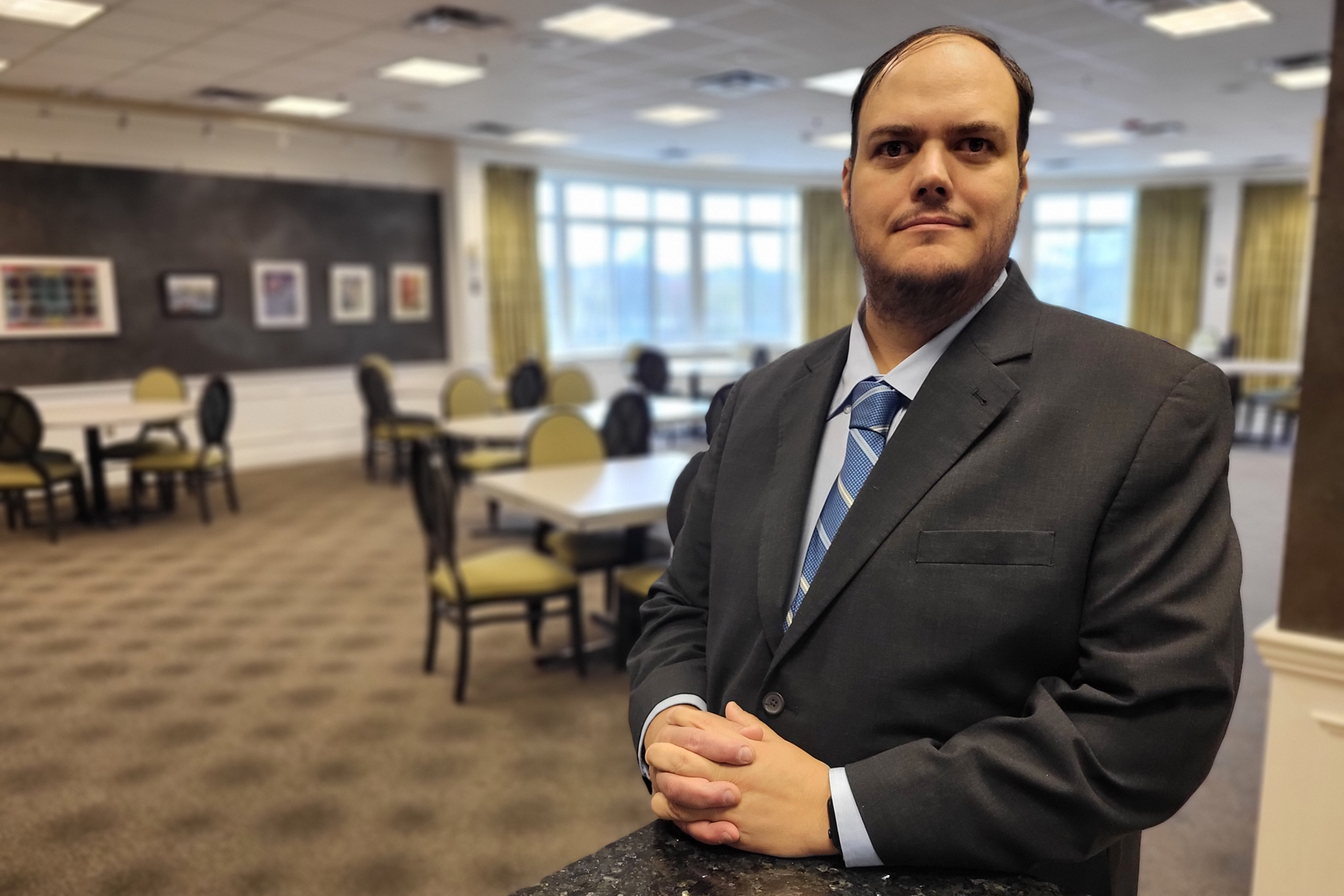Staying True To Himself, With Dreams Of Opening A Mexican Restaurant

Chris Gonzalez’s life as a deafblind individual has taken him from advocating on Capitol Hill in Washington, D.C., for funding to provide resources to level the playing field for equal access to online materials for those who are deafblind, to pursuing his lifelong dream of working in the hospitality industry.
Two years ago, his journey led him to SUNY Schenectady to earn his college degree, something that he started in the mid-2000s at Southwestern College in Southern California. This month, as he graduates with both his Hotel and Restaurant Management degree and his Assistant Chef certificate, he is looking forward to continuing on for his bachelor’s degree through SUNY Delhi, traveling internationally, and then opening up his own restaurant in the Capital Region where he intends to make a name for himself by selling fresh, simple, and healthy Mexican food, and showing others what can be done when you put your mind to it.
Growing up in San Diego, food was always a big part of Chris’s life, something he attributes to his mother Luz Maria, an “excellent cook, who was always into nutrition and eating healthy.” When he decided to turn his love for food into a career as a chef, he knew that as someone who was deafblind, there would be challenges in the kitchen. “I didn’t know of anyone who was deafblind going to school to become a chef,” he said, but he knew how to advocate for himself.
Chris has been deafblind since birth, but his hearing and vision progressively deteriorated more during his 20s and 30s. He was then diagnosed with chronic kidney disorder (CKD), which eventually required him to go through dialysis three times a week.
Although he has always been independent, Chris attended the Helen Keller National Center to learn braille and to advance his knowledge of Protactile (the language of touch used by the deafblind) and American Sign Language. This is also where he met his fiancée, Quinn. Impressed by his ability to cook and live independently, staff invited him to return as an intern and teach independent living skills to others who are deafblind.
When he decided to move to the Capital Region and start attending SUNY Schenectady, Chris met with Susanna Adams, Coordinator of ADA Transition Services II, to determine how best he could fulfill what he describes as the most important aspect of the hospitality industry: communication. He was able to complete his courses with the assistance of the TRIO Student Support Services Program, in-person tutoring, and online brain fuse.
While cooking in the kitchen, he used communication access real-time translation (CART) through the use of a Bluetooth mic worn by his instructors, generating captions on his iPad. When he began focusing more on the front of the house, during Banquet and Restaurant Management classes, he had two sign language interpreters so that customer requests made were clear. The added bonus of having “in-person” interpreters was that not only did they facilitate communication to accommodate his hearing loss, but they were also “his eyes,” informing him from a distance of guest needs including water glasses and bread baskets needing refills, a guest trying to get his attention, or someone approaching him with a large tray of food.
As he prepares for a kidney transplant within the next two years, Chris has his focus on supporting DeafBlind Citizens in Action as vice president, improving his health, traveling with his mother when he can, taking cooking classes from renowned chefs around the globe, and making plans for his business which will include a commercial kitchen equipped to accommodate a restaurant/catering, cooking classes, a mini market for access to Mexican ingredients, and a tortillaria with fresh tortillas and masa.
He shared, “I’m so glad I came to SUNY Schenectady. Professors including Kim Otis
and Chef Rain O’Donnell not only accepted me for who I was, but their compassion,
patience, and encouragement allowed me to grow both as a student here and as a person.
If I had to give advice to future students with disabilities, I would say, ‘Know what
you want and don’t be afraid to ask for it. Don’t look at what you’re asking for as
extra. Look at it as a whole package for your needs that will set you up for success.’
”